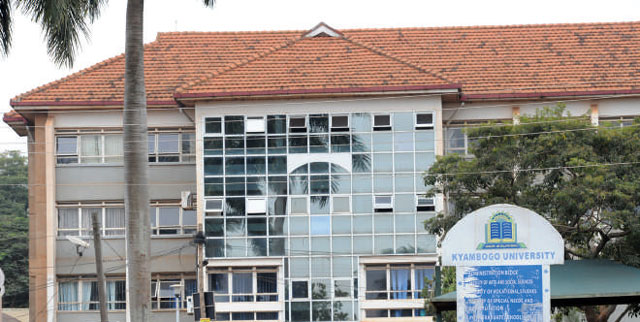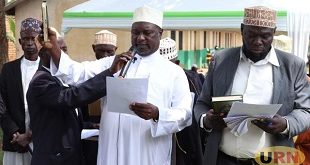
Kampala, Uganda | THE INDEPENDENT | A survey report on Kyambogo University land ownership blames the endless land wrangles at the institution on the irregular existence of two separate and active freehold certificates of title.
Over the years, Kyambogo University land has been at the center of the dispute involving several interested parties including Kampala District Land Board, Ministry of Education, and Buganda Kingdom acting on behalf of the estate administrators of the late Christopher Kisosonkole, who was a grandfather to the Kabaka.
The conflict reached its peak in February this year prompting the Minister for Lands, Beti Kamya to call for a harmonization meeting which later suggested setting up a technical survey team to solve the matter.
Jasper Kakooza, a senior staff surveyor at the lands ministry who is also a member of the technical survey team says during the survey, they found out that the land in question has two titles with the first one issued in 1962 and another one issued in 2007.
“We still have a question on how Uganda Land Commission made this error. The most confusing part is the fact that the 2007 title is sitting on two different land tenures (freehold and mailo). That is impossible, you can’t have two land tenure systems on the same land,” says Kakooza.
According to the technical survey report accessed by URN, the land title issued in 2007 mutated off some land from plot M37 that was registered on the 1962 title and surrendered it to several education agencies but included land from the neighboring Kisosonkole Mailo estate.
“The cadastral boundary of Kyambogo University land as described by plot M902 overlaps into the Kisosonkole Private Mailo Estate by 46.4 hectares,” the report reads in part.
The 46.4 hectares in question currently host Kyambogo University farm, a portion of the University East-End playground, buildings housing the Department of Art and Design, Department of Agriculture, the University Guest House and staff quarters.
Other institutions positioned within private mailo land include; Kyambogo College School, Kyambogo Primary School, National Curriculum Development Centre, and Education Standards Agency.
Besides the said overlap, the report has also unearthed deviations between the area on the certificates of title and the actual areas on the ground.
For instance, the current Kyambogo University certificate of title shows that the institution owns 137.512 hectares of land on plot M902. However, during the boundary opening exercise, it was revealed that 22.748 hectares of the land were not included in the title.
“It’s difficult to tell on why the measurements of land on the ground differ from those on the ground,” says Kakooza. “When you add, a total of 28.995 hectares of land are not reflected on the (certificates of) title. We want to believe that the surveyor made a computation error during the process of the boundaries.”
The report also reveals that there are three leaseholds on Kyambogo University land along Kyambogo road that were suspiciously allocated to private individuals between 2011 and 2012. The land was allocated to Wanzela Mulebeka, Albino Ijum, and an un-mentioned individual, each was allocated five hectares.
“The registration of lease instruments on the KYU (Kyambogo University) land comprised in FRV 208 Folio 9 of 1962 instead of FRV 461 Folio 13 of 2007 to private persons in the period of 2011 to 2012 by UCL should be properly investigated and the current status of these lease holdings established accordingly,” says the report.
Furthermore, the report highlights that over 27 hectares of the university land fall under the gazetted upper Kinawataka wetland as claimed by the Kampala District Land Board. This parcel of land covers informal settlements, junior staff quarters, the university cricket ground, backyards of Kulubya, a portion of Pearl and North Halls of student’s residence.
“Kyambogo University and Kampala District Land Board should amicably agree on how to manage the land use within the wetland,” the report recommends. “If the status quo is maintained, the drainage system for Ntinda, Kyambogo, and Kiwatule hill will be impeded thus worsening the drainage and flooding problems”.
******
URN
 The Independent Uganda: You get the Truth we Pay the Price
The Independent Uganda: You get the Truth we Pay the Price



